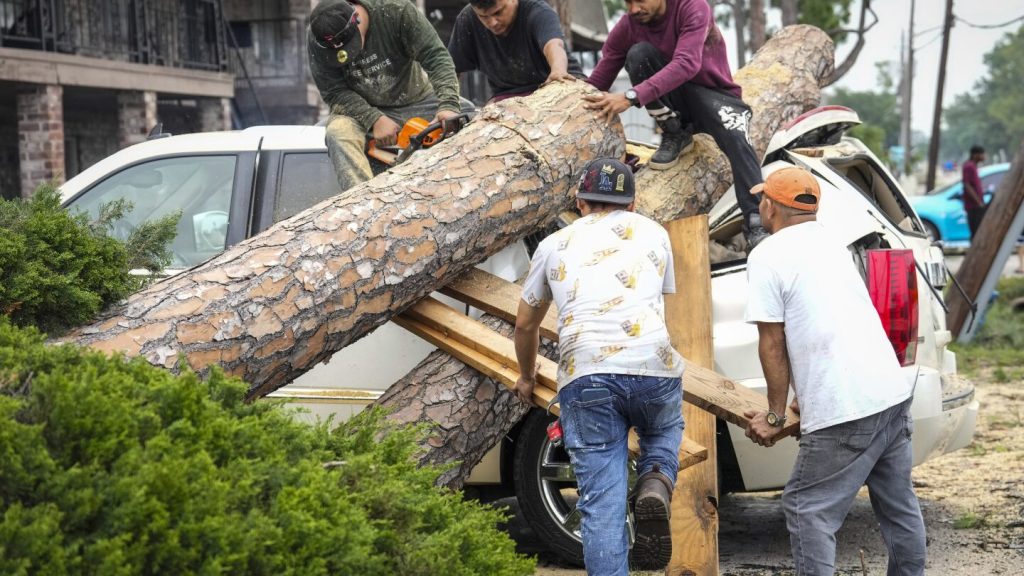Texas officials are warning residents that power outages caused by severe thunderstorms in Houston could last for weeks, leaving nearly 1 million homes and businesses without electricity. The storm, which resulted in hurricane-force winds, has already claimed the lives of at least four people. Emergency response and medical experts are advising residents on how to stay cool and safe during the summer heat when fans and air conditioners are not an option. It is crucial to stay hydrated and avoid exertion, seeking shade and refraining from direct sunlight during the hottest parts of the day.
To combat overheating, experts recommend soaking clothing in water or regularly spraying the skin with water, as this can help cool the body through evaporation. These strategies can be especially helpful for older individuals, as aging bodies produce less sweat. Opening windows during the daytime, if the indoor temperature is the same or warmer than outside, can help increase air flow, while keeping curtains closed to prevent direct sunlight. At night, opening windows can help bring in cooler air as temperatures drop, allowing for a more comfortable environment.
Food safety is another important consideration during power outages, as perishable items in the refrigerator can only last about four hours without power, while items in the freezer can last up to two days. It is recommended to transfer food to a cooler with ice and cold packs to maintain safe temperatures. Nonperishable foods that do not require refrigeration are a good option to have on hand. Using camp stoves or charcoal barbecues for cooking should always be done outdoors, at least 20 feet away from windows, to prevent carbon monoxide poisoning.
In terms of charging phones and devices, limiting usage and dimming display screens can help preserve battery life. Solar-powered chargers and charging devices in a car are additional options to maintain connectivity. When using generators as an external power source, it is crucial to follow safety guidelines, such as keeping them at least 20 feet away from the home and ensuring they are dry and protected from rain or flooding. Extra caution should be taken when connecting a generator to the home power source to avoid electrical surges that could harm individuals working in the area.
Additional safety tips include unplugging electronics to avoid damage from electrical surges, using battery-powered flashlights instead of candles, and checking on vulnerable populations, such as older adults or those with disabilities, to ensure they have the support and resources they need during the outage. It is essential to follow these guidelines to stay safe and comfortable during prolonged power outages caused by severe weather events.


